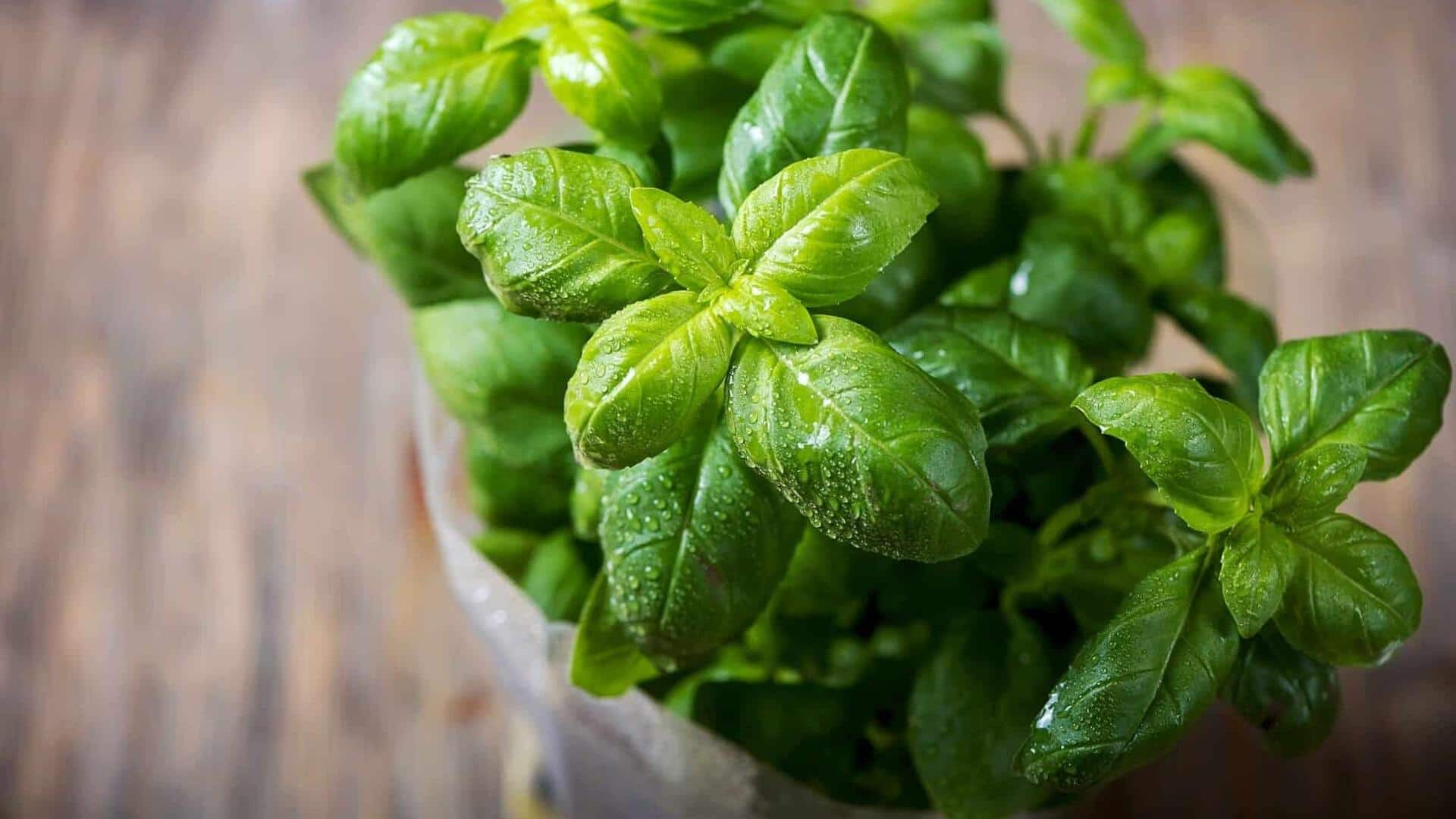Basil v/s cilantro: Which one offers more vitamin K?
What's the story
In the world of culinary herbs, basil and cilantro are stars not only for their unique flavors but also for their impressive nutrient profiles.
Both are known for their health benefits, particularly their high vitamin K content, which is crucial for blood clotting and bone health.
This article provides a detailed nutritional comparison between these two herbs, focusing on vitamin K content and other key nutrients.
Vitamin K
Vitamin K content comparison
While both basil and cilantro are rich in vitamin K, basil is the clear winner, offering a whopping 414% of the recommended daily value per 100 grams, versus cilantro's still-impressive 295%.
This means if you want to maximize your intake of this crucial nutrient, basil is the way to go.
More than vitamin K
Additional nutritional benefits
Beyond vitamin K, both herbs are packed with various other vitamins and minerals.
Cilantro is particularly high in vitamin A, offering around 135% of the daily value per 100 grams. Vitamin A is crucial for healthy vision and a strong immune system.
Basil also holds its own with significant amounts of calcium and magnesium, which are essential for strong bones and proper muscle function.
Culinary flexibility
Culinary uses and flexibility
In terms of culinary applications, basil and cilantro each contribute unique flavors to dishes.
Basil, a cornerstone of Italian cuisine, shines in pesto and as a fresh complement to pizzas and pastas.
Cilantro, a staple in Mexican and Asian recipes, imparts a refreshing zing to salsas and curries.
Due to their distinct flavor profiles, substituting one for the other can drastically alter the taste of a dish.
Home gardening tips
Growing your own supply
Growing your own basil or cilantro is not only gratifying but also guarantees a fresh supply whenever you need it.
Both herbs require well-drained soil and plenty of sunlight.
Basil loves warmth, while cilantro prefers cooler temperatures. However, both can be easily grown indoors on a sunny windowsill.
Frequent harvesting is key! It promotes bushier plants and extends the growing season.
Allergies and sensitivities
Health considerations
Although basil and cilantro are excellent additions to your diet due to their high nutrient content (especially vitamin K),
please remember that some people may have allergies or sensitivities to these herbs.
So, it is recommended to add them slowly to your diet, particularly if you are not used to eating them regularly.
This way, you can easily spot any negative reactions.
